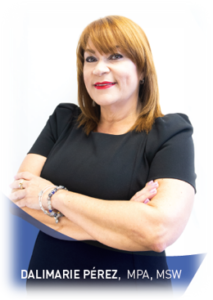 On April 11, 2019, Puerto Rico awoke to the tragic news that a daughter had hammered her 89-year-old mother with Alzheimer’s Disease to death. The 54-year-old daughter presented signs of compassion fatigue for her role as caregiver, and she told the media, “I am not a bad person, and I took care of her for many years alone. Do not leave the caregivers alone, because anyone can explode.”
On April 11, 2019, Puerto Rico awoke to the tragic news that a daughter had hammered her 89-year-old mother with Alzheimer’s Disease to death. The 54-year-old daughter presented signs of compassion fatigue for her role as caregiver, and she told the media, “I am not a bad person, and I took care of her for many years alone. Do not leave the caregivers alone, because anyone can explode.”
According to a study published by the Behavioral Sciences Research Institute of the University of Puerto Rico, about 7.3% of Puerto Rico’s population is categorized as living with severe mental illness (SMI) (Federal Register). The study also found that 3.2% are impacted by bipolar disorder and 9.7% by major depressive disorder.
In many cases, the family supports and cares for the person who’s experiencing mental illness. When caregivers take on that role, they often do not fully comprehend their breadth of responsibilities and have limited-to-no knowledge of the energy and dedication required of caregivers. As a result, studies have shown a long-term deterioration in the quality of life of the caregiver, including decreased social and support networks, poor communication with other family members, financial problems and the development of their own mental health disorders.
This situation has worsened because of COVID-19. Mental health services that target this vulnerable population were limited due to the lockdown. As a result, individuals have started to experience increased feelings of anxiety and stress, showed a relapse of symptoms, or have died by suicide.
Thankfully, there are ways to help. By providing helpful and clear information, it is possible to decrease feelings of helplessness so that the caregiver and the family member with a mental health condition can work together. As a Mental Health First Aid (MHFA) Instructor, I believe we need to advocate for those who are taking the responsibility to care for a family member with SMI. We need to empower caregivers to take care of themselves while helping others.
A 2018 study found that access to psychoeducational workshops and skills-based training, among other strategies, was crucial for caregivers taking care of patients with severe mental health conditions. MHFA can do just that.
MHFA provides an educational alternative to help caregivers to manage their loved ones with SMI and their own mental health. MHFA can help in many important ways:
MHFA equips caregivers with the skills to identify, understand and respond to signs and symptoms of mental health and substance use challenges. The MHFA training teaches people about self-care and helps them feel okay about reaching out for help and proactively developing a wellness plan.
I encourage everyone, especially caregivers, to get trained in Mental Health First Aid. Family members are often the first to notice changes in the mood or behavior of their loved ones, and with proper training and resources can be an integral part of helping before a crisis emerges.
References: